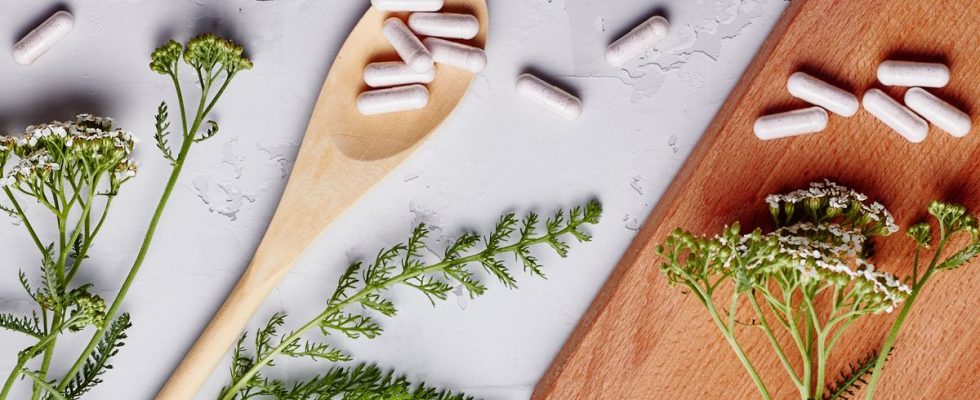Naturopathy, sophrology, acupuncture, lithotherapy… All these unconventional care practices are booming. In a recently published report, the College of Physicians denounces the lack of supervision and supervision around some of these disciplines. “It is necessary to sort out practices that are dangerous to the health of patients and those that may be of interest in supporting the patient and restricting them to the sole area of well-being”, explains the institution.
As a reminder, at the end of 2022, the medical appointment platform Doctolib had removed nearly 5,700 “wellness practitioners” from its site, in particular after the discovery of more than dubious practices by the star of naturopaths, Irène Grosjean. Naturopaths therefore, but also sophrologists, hypnotherapists or lithotherapists… We often hear about these terms, but what exactly are they? 20 minutes screened six unconventional care practices to understand what they are and whether they are regulated. And it varies enormously depending on the discipline.
Naturopathy
Naturopathy is a preventive discipline aimed at maintaining or restoring health through natural means. It takes into consideration all aspects of the person, such as his diet, his mental balance or his physical activity and seeks to act on the cause and not on the symptom.
There is no training requirement to become a naturopath. Many professional or continuous training courses exist, but none of them is validated by a State diploma.
- What does science say?
The WHO has recognized naturopathy as a traditional medicine since 2001, but no study has evaluated the discipline as a whole, because the practices it covers are extremely heterogeneous.
Lithotherapy
Lithotherapy is a holistic discipline aimed at using stones and crystals, either in direct contact with the skin or close to the body, in order to bring well-being to people. Lithotherapists believe that the stones would contain minerals each with properties.
The profession is not regulated. No training is therefore required to become a lithotherapist.
- What does science say?
No scientific study has demonstrated, beyond the placebo effect, an effect on the health of this practice, nor the existence of an energy specific to the crystals.
hypnotherapy
Hypnotherapy is either psychotherapy through hypnosis or alternative medicine using hypnosis for therapeutic purposes, especially to treat pain.
The profession of hypnotherapist is not regulated in France. However, university training courses intended for health professionals make it possible to obtain a university degree in medical hypnosis. There are also other training courses that can be given to a wider audience.
- What does science say?
In 2015, Inserm evaluated the effectiveness of the practice of hypnosis by compiling all the medical studies carried out on the subject. It confirms its therapeutic interest to manage anxiety, post-traumatic stress syndrome in adults, irritable bowel syndrome, psoriasis, asthma, eczema, to facilitate gestures or medical examinations or to reduce the amount of sedatives and painkillers during an operation.
acupuncture
Acupuncture comes from traditional Chinese medicine. It consists of stimulating, with needles, acupressure devices, suction cups, magnets or lasers, different points of the body, in order to treat physical or psychological disorders or to cause an analgesic effect.
In France, the act of acupuncture is considered a medical act. Only members of the medical professions can practice it, doctors and dental surgeons for acts related to dental surgery and midwives for acts related to obstetrics. The doctor who wishes to become an acupuncturist must follow a two-year training course to obtain an interuniversity diploma in general acupuncture.
- What does science say?
According to the Ministry of Health, acupuncture performed using needles has beneficial effects for the treatment of chronic pain or nausea and vomiting related to pregnancy or caused by chemotherapy. For all other indications, it is currently impossible to conclude on therapeutic efficacy.
Osteopathy
Osteopathy considers that the different parts of the body are interconnected and can move relative to each other. The work consists in identifying the blockages at the origin of the pains and to treat functional problems thanks to manipulations and manual mobilizations. “Only musculoskeletal and myofascial manipulations (tissue that covers the muscles), exclusively manual, external and not forced, are authorized”, recalls the Ministry of Health.
The professional use of the title of osteopath is reserved for people holding a diploma sanctioning a specific training determined in 2015 (before, the training was very unequal). The osteopath diploma is not a state diploma, but is issued by establishments approved by the Ministry of Health. The training lasts five years. Osteopaths must be registered on a list drawn up by the Director General of the Regional Health Agency of their professional residence.
- What does science say?
A 2012 Inserm report compiling numerous studies indicates that osteopathy is no more effective than conventional methods of treating spinal pain such as drug treatment or rehabilitation by a physiotherapist. However, a large study published in 2021 in the journal Jama Internal Medicine shows, in the treatment of back pain, an effect slightly superior to placebo but which is not clinically significant, as we explained in our podcast Sixth Science.
Sophrology
Sophrology is a psychocorporal practice based on relaxation techniques associated with breathing exercises and positive evocation. It is used for therapeutic purposes, but also in the context of childbirth preparation, for example.
No diploma is compulsory in order to practice the profession of sophrologist. Many training courses exist, but they are very heterogeneous and poorly supervised.
- What does science say?
“Some studies have looked into the question of the effectiveness of sophrology, too few are methodologically convincing and their results too heterogeneous for us to be able to confirm or invalidate any effectiveness”, estimates Inserm in a report submitted in 2020.

